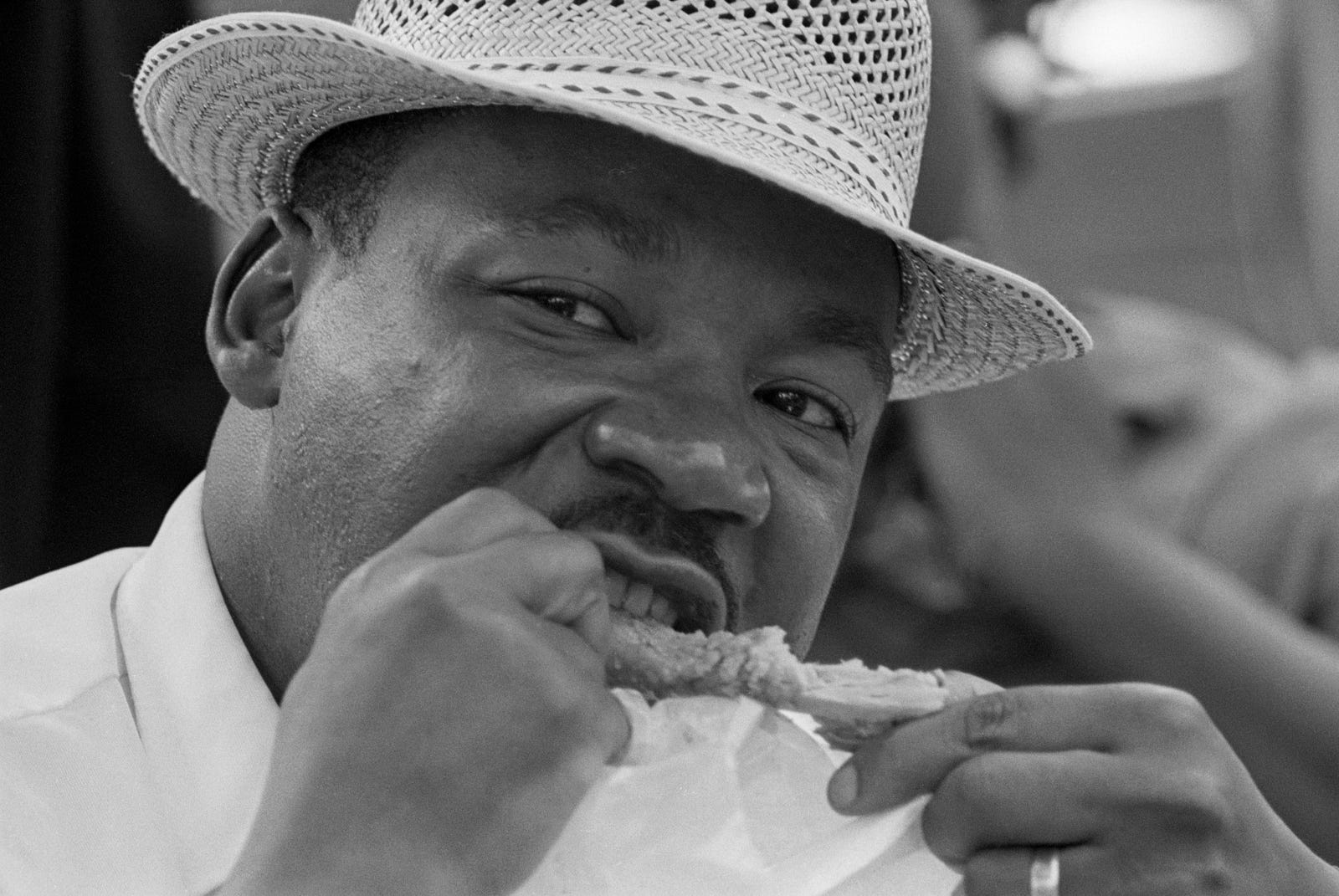Your Videyoda.
ON DECEMBER 5, 1955, FOUR days after Rosa Parks was arrested for refusing to give up her seat on a segregated city bus, a community meeting was held at the Holt Street Baptist Church in Montgomery, Alabama. Thousands of black citizens gathered to hear about the proposed bus boycott, filling every inch of the church’s sanctuary, balcony, and basement auditorium. Loudspeakers were set up to accommodate the overflow, which extended for three blocks in each direction.
“There comes a time when people get tired of being trampled over by the iron feet of oppression,” Dr. Martin Luther King Jr. called out from the podium. “There comes a time, my friends, when people get tired of being flung across the abyss of humiliation.” Dr. King’s speech—his first as a civil rights leader—electrified the crowd.
Georgia Teresa Gilmore, a cafeteria cook, midwife, and single mother of six, was one of the thousands of people crammed into the church that night. “I never cared too much for preachers,” Gilmore later recalled, “but I listened to him preach that night. And the things he said were things I believed in.”
Gilmore played a pivotal role in the Montgomery bus boycott. In between parenting her six children and juggling two jobs, she single-handedly operated a grassroots fundraising campaign to support the Montgomery Improvement Association (MIA), the organization coordinating the protest.
In order to raise money for the MIA, Gilmore organized an underground network of black women who sold pound cakes, sweet potato pies, and plates of fried fish and stewed greens door-to-door. More than half of the city’s black female workers were employed by white families, so Gilmore’s group provided an opportunity for them to contribute without jeopardizing their jobs.

“Martin Luther King often talked about the ground crew, the unknown people who work to keep the plane in the air,” Pastor Jordan, pastor of the Lilly Baptist Church in Montgomery, reflected in an oral history. “She was not really recognized for who she was, but had it not for been people like Georgia Gilmore, Martin Luther King Jr. wouldn’t have been who he was.”
Everyone was welcome at Gilmore’s table. “Her living room and kitchen were a microcosm of what integration should look like,” explains Pastor Jordan. “It was crowded all the time with college students, government workers, military, professionals, and non-professionals.” Even Governor Wallace, the man who had previously proclaimed “segregation now, segregation tomorrow, segregation forever,” later ate at Gilmore’s. She called him “Guvs.”
Gilmore remained active in the Civil Rights Movement for the rest of her life, using her food to fuel social change. She died on March 7, 1990, the 25th anniversary of the Selma to Montgomery March. Despite being advised by her doctor to stop cooking, she woke up early to prepare chicken and potato salad for the people marching in commemoration. Instead, her family served the food to people who came to mourn her. Years later, Gilmore’s sister Betty told Edge that, “Lots of people brought food to the house, too, but everybody ate Georgia’s chicken and potato salad first. Nobody could fix it better.”
-edited from Jesse Gingrich, Atlas Obscura, 12/31/18 (so much more to this story!)
Darkness cannot drive out darkness; only light can do that. Hate cannot drive out hate; only love can do that. - MLK, Jr
BE THE LIGHT.

